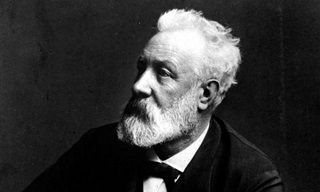Clean Energy’s Role in the Advancement of Our Civilization

Verne described inventions that were similar to modern airplanes and automobiles, and tall skyscrapers where people use electricity to listen to the radio and send faxes, and yet he wrote his stories by candlelight.
Hollywood is littered with screenplays that project the world of the future, most of which are deeply dystopian, normally visions of a post-apocalyptic period where what’s left of humankind is locked in some sort of tooth-and-nail struggle for precious resources. I understand this, given that a world of abundance and compassion doesn’t make for excellent theater. Yet we need to understand that, a few wingnuts notwithstanding, our civilization is making real progress away from the cruelty and ignorance of the past. In only 800 years, we’ve produced the Magna Carta (that acknowledged human rights), the Enlightenment (that replaced superstition with science), the U.S. Constitution, the end of legal slavery, women’s suffrage, the Civil Rights Act, and now, apparently, the beginnings of a huge reformation in the Catholic Church. 140 countries have abolished the death penalty. It really hasn’t been a bad 800 years, all things considered.
And another huge step is about to be taken, if the observations I make in “Bullish on Renewable Energy” about clean and abundant energy are accurate, and if all (or any, really) of my “Fourteen Reasons” take full effect. Imagine a world that does not fight over oil, and uses new-found sources of energy to provide adequate sanitation, drinking water, food, and education to all its people. We’re actually fairly close, and the effects will be profound, to say the least.
